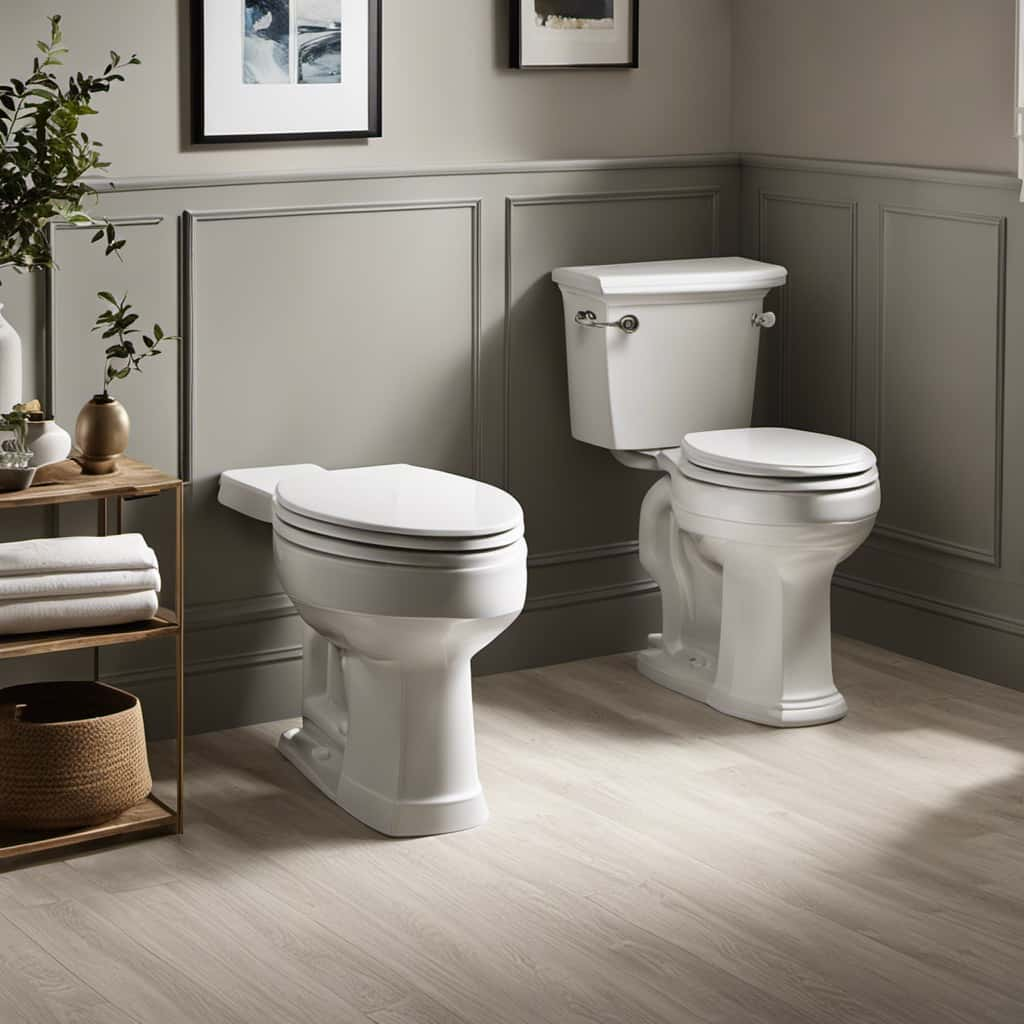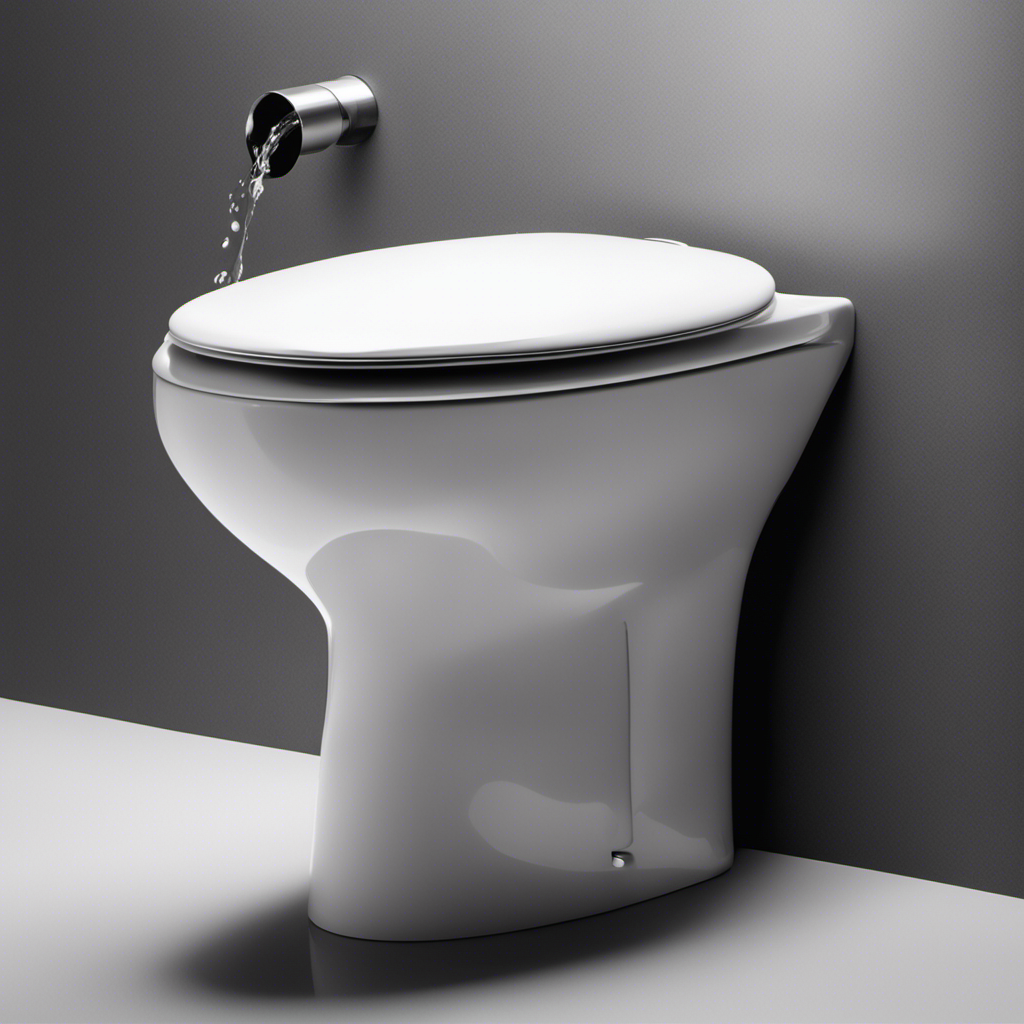Imagine being stuck in a frustrating and uncomfortable situation, desperately longing for relief. That’s exactly how it feels when constipation strikes.
But fear not, for I am here to guide you through the journey of how to poop when constipated on the toilet.
In this article, we will explore the causes of constipation, natural remedies for relief, and practical tips to improve your bowel movements.
So, prepare to bid farewell to constipation and embrace the joy of a smooth and satisfying trip to the bathroom.
Key Takeaways
- Maintaining a balanced diet rich in fiber and staying hydrated can help prevent constipation.
- Regular exercise stimulates the digestive system and promotes bowel movements.
- Herbal remedies like senna, cascara sagrada, and aloe vera can promote bowel movements.
- Adjusting your posture on the toilet, practicing relaxation techniques, and engaging in regular physical activity can help improve bowel movements when constipated.
Understanding Constipation and Its Causes
If you’re constipated, it’s important to understand what causes it. Constipation can be caused by a variety of factors, including diet, lack of physical activity, certain medications, and underlying medical conditions.
Dietary factors such as a low fiber intake, inadequate fluid intake, and excessive consumption of processed foods can contribute to constipation. Additionally, a sedentary lifestyle and lack of exercise can slow down bowel movements and lead to constipation. Certain medications, such as opioids, antacids, and antidepressants, can also cause constipation as a side effect.
It’s important to prevent constipation by maintaining a balanced diet rich in fiber, staying hydrated, exercising regularly, and avoiding excessive use of medications that can contribute to constipation. By addressing these causes, you can effectively prevent constipation and maintain a healthy digestive system.
Transitioning into the next section on natural remedies for constipation relief, there are also several strategies and lifestyle changes that can help alleviate constipation symptoms.
Natural Remedies for Constipation Relief
There are several natural remedies you can try to relieve constipation. Here are four options that can help you find relief and improve your digestive health:
-
Herbal Remedies: Certain herbs, such as senna, cascara sagrada, and aloe vera, have been used for centuries to promote bowel movements. These herbal remedies can be found in the form of teas, capsules, or powders. However, it’s important to consult with a healthcare professional before using any herbal remedies, as they may interact with medications or have side effects.
-
Hydration Techniques: Drinking an adequate amount of water is crucial for maintaining regular bowel movements. Staying hydrated helps soften the stool, making it easier to pass. Additionally, incorporating hydrating foods like fruits and vegetables into your diet can also help prevent constipation.
-
Exercise: Engaging in regular physical activity can stimulate your digestive system and promote bowel movements. Aim for at least 30 minutes of moderate-intensity exercise, such as brisk walking or cycling, most days of the week.
-
Fiber-Rich Diet: Consuming a diet high in fiber can add bulk to your stool and promote regular bowel movements. Include foods such as whole grains, fruits, vegetables, and legumes in your meals. Gradually increase your fiber intake to avoid gas and bloating.
Adjusting Your Diet and Lifestyle for Better Bowel Movements
Drinking plenty of water and eating a fiber-rich diet can help improve your bowel movements and prevent constipation. Fiber-rich foods, such as fruits, vegetables, whole grains, and legumes, add bulk to your stool and promote regular bowel movements.
It is recommended to consume at least 25-30 grams of fiber per day for optimal digestive health. Hydration is also crucial in maintaining regularity, as water helps soften the stool and make it easier to pass. Aim to drink at least 8-10 glasses of water daily.
In addition to a healthy diet, regular exercise can also help prevent constipation. Physical activity stimulates the muscles in your digestive tract, promoting bowel movements.
Incorporating these lifestyle changes into your daily routine can greatly improve your bowel movements and alleviate constipation symptoms. Remember, if constipation persists or becomes chronic, it is important to seek medical advice from a healthcare professional.
Tips for Proper Toilet Posture and Relaxation Techniques
To improve your bowel movements and promote relaxation while using the toilet, try adjusting your posture by elevating your feet on a stool. This simple change can make a big difference in your ability to pass stool more easily.
Here are four tips to enhance your toilet experience and alleviate constipation:
-
Practice proper breathing techniques: Take slow, deep breaths to help relax your pelvic floor muscles and encourage a smoother bowel movement.
-
Engage in stretching exercises: Gentle stretching, such as a forward fold or knee-to-chest pose, can help relieve tension in your abdomen and promote bowel regularity.
-
Maintain regular physical activity: Regular exercise stimulates your digestive system and helps prevent constipation.
-
Stay hydrated: Drink plenty of water throughout the day to keep your stools soft and easier to pass.
Seeking Medical Help for Chronic Constipation
If you’re consistently struggling with bowel movements, it’s time to seek medical help for your chronic constipation. As a gastroenterologist, I understand the discomfort and frustration that constipation can cause. It’s important to recognize that chronic constipation is a medical condition that may require medical interventions and medication options. To provide you with a comprehensive understanding of your treatment options, I have summarized them in the table below:
| Medical Interventions | Medication Options |
|---|---|
| Dietary Changes | Fiber Supplements |
| Osmotic Laxatives | |
| Stimulant Laxatives | |
| Behavioral Therapies | Lubricant Laxatives |
| Stool Softeners | |
| Prokinetic Agents |
Frequently Asked Questions
Can Constipation Be Caused by Certain Medications?
Yes, certain medications can cause constipation. Common medications causing constipation include opioids, antacids with aluminum or calcium, anticholinergics, and iron supplements. It’s important to discuss any concerns with your healthcare provider.
How Long Does It Usually Take for Natural Remedies to Relieve Constipation?
On average, natural remedies can take anywhere from a few hours to a few days to relieve constipation. The effectiveness of these remedies varies, but incorporating dietary changes and staying hydrated can help.
Is Drinking Coffee Effective in Relieving Constipation?
Drinking coffee can be effective in relieving constipation due to its stimulant effect on the digestive system. However, it’s important to balance it with eating fiber and drinking water to maintain overall digestive health.
Can Stress and Anxiety Contribute to Constipation?
Stress and anxiety can indeed contribute to constipation. It’s important to prioritize stress management and implement relaxation techniques. Take time for self-care and find healthy ways to cope with stress, as it can impact your digestive health.
What Are the Potential Complications of Chronic Constipation if Left Untreated?
If left untreated, chronic constipation can lead to complications such as hemorrhoids, anal fissures, rectal prolapse, and fecal impaction. These long-term effects can cause discomfort, pain, and further digestive issues. Seeking medical help is essential for proper management.
Conclusion
In conclusion, it’s important to understand the causes of constipation and make necessary adjustments to our diet and lifestyle.
By incorporating natural remedies and practicing proper toilet posture and relaxation techniques, we can alleviate the discomfort of constipation.
However, if chronic constipation persists, it’s essential to seek medical help from a gastroenterologist or digestive health specialist.
Remember, you’re not alone in this struggle. Let’s navigate through this together and find the relief we deserve.









